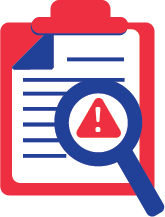Big Data in Maritime: How a shipping company can effectively use data
Key uses of big data in shipping and logistics: analytics for shipowners, data engineering, vessel performance and fleet situational management. Big Data in Maritime. How a shipping company can effectively use data from vessels and external sources.
Prior to the advent of big data, organizations used traditional technologies to analyze large datasets collected from conventional sources such as warehouses, distribution nodes, etc. However, with the advent of big data, it has become easier to perform. Analytics not only consists of large data sets coming from traditional sources, but also takes into account and analyzes unconventional data in real-time nodes, as well as in batch mode.
There are several key uses of big data in the shipping and logistics industry. Thanks to the use of big data engineering, the shipping industry has grown even stronger over the past few years.
There are several key uses of big data in the shipping and logistics industry. Thanks to the use of big data engineering, the shipping industry has grown even stronger over the past few years.

Big data is used to manage ship sensors and for predictive analysis, which is needed to prevent delays and improve the overall operational efficiency of the industry. In the shipping industry, proper cargo tracking is essential to ensure the necessary safety and confidentiality.
Through data obtained through proper tracking of shipments over several years, information on the causes of vessel losses at sea, losses of containers inside or outside terminals or warehouses, and other problems related to dispatch (for example, the reasons for damage to the goods) may be received. This big data for the shipping industry can be used to make decisions in the future to predict and avoid costly problems, and to create more reliable cargo delivery options.
Everyone agrees that big data can play an important role in ship design. Basically, this will be possible by analyzing the results obtained from the sensors of previously used vessels. Data collected and analyzed over the life of the vessel will be useful for future improvements in ship design. Previous datasets could help in testing the proposed ship design without physically developing it. This is a very big advantage for the shipbuilding industry.
As we move towards a more globalized economy, the demand for transportation of goods and related logistical support will continue to grow exponentially. Over time, this growth will increase the need for maximizing time and profitability to have the most profitable delivery processes. Through the use of advanced data processing techniques, delivery of goods will become more efficient. Improved transport services will increase overall international trade.
Through data obtained through proper tracking of shipments over several years, information on the causes of vessel losses at sea, losses of containers inside or outside terminals or warehouses, and other problems related to dispatch (for example, the reasons for damage to the goods) may be received. This big data for the shipping industry can be used to make decisions in the future to predict and avoid costly problems, and to create more reliable cargo delivery options.
Everyone agrees that big data can play an important role in ship design. Basically, this will be possible by analyzing the results obtained from the sensors of previously used vessels. Data collected and analyzed over the life of the vessel will be useful for future improvements in ship design. Previous datasets could help in testing the proposed ship design without physically developing it. This is a very big advantage for the shipbuilding industry.
As we move towards a more globalized economy, the demand for transportation of goods and related logistical support will continue to grow exponentially. Over time, this growth will increase the need for maximizing time and profitability to have the most profitable delivery processes. Through the use of advanced data processing techniques, delivery of goods will become more efficient. Improved transport services will increase overall international trade.
The following table shows snapshots of the big data application in the marine industry:
Role
Function
Example of application
Ship Operator
Operator
Energy saving operation
Fleet Planning
Fleet allocation
Service planning
Service planning
Ship owner
New building
Design Optimization
Technical Management
Safe operation
Hull and Propeller cleaning
Hull and Propeller cleaning
Area
Description
Chartering
A key function of charterers is to find the right ship for cargo at the most economical price.
The task is highly dependent on information provided to them by known brokers and ship owners. However, as this information is limited, it may or may not be most efficient.
Big data analytics can provide charters with readily available, accurate and actionable information to improve decision-making. Charters can integrate Automatic Identification System (AIS) information, position reports, estimated times of arrival, vessel particulars (such as size) and market information into an exchange portal to find all available alternatives as well as the freight forecast. This can give charterers and ship owners access to more options thus improving transparency and competitiveness.
The task is highly dependent on information provided to them by known brokers and ship owners. However, as this information is limited, it may or may not be most efficient.
Big data analytics can provide charters with readily available, accurate and actionable information to improve decision-making. Charters can integrate Automatic Identification System (AIS) information, position reports, estimated times of arrival, vessel particulars (such as size) and market information into an exchange portal to find all available alternatives as well as the freight forecast. This can give charterers and ship owners access to more options thus improving transparency and competitiveness.
In the following table there are some key application areas for big data usage:
Operations
Speed: Ships, like automobiles, have optimum speeds, and various tests are conducted at the time of vessel delivery to determine the optimum speed for fuel consumption. However, operating a vessel at its optimum speed is difficult as it changes over time due to a variety of factors such as engine wear and maintenance. Big data analytics can help ship owners determine the optimum speed for fuel consumption, taking into consideration factors such as bunker cost, freight rates and schedules.
Maintenance: Decisions regarding vessel maintenance, including hull cleaning and propeller polishing, are taken based on intuition or a schedule rather than on actual vessel performance. Fuel consumption data can also be used for cost-benefit analysis of vessel maintenance.
Data analytics can make it easier for operators to decide the timing and the benefits of performing maintenance.
Maintenance: Decisions regarding vessel maintenance, including hull cleaning and propeller polishing, are taken based on intuition or a schedule rather than on actual vessel performance. Fuel consumption data can also be used for cost-benefit analysis of vessel maintenance.
Data analytics can make it easier for operators to decide the timing and the benefits of performing maintenance.
Voyage operations
Terminal operators, voyage managers or port agents need estimated time of arrival (ETA) and cargo information. Vessels can be tracked using dashboards instead of relying on notes, emails or phone calls. This helps in making more effective decisions about terminal and berth allocation, cargo handling and route tracking.
Dashboards can also provide information about any deviations from optimum performance.
The ideal route, the weather service-provided route and the actual route can be tracked in real-time. Any changes to speed, ETA and other factors can be tracked and managed in real-time, thus ensuring that the voyage goes as planned and remains profitable.
Dashboards can also provide information about any deviations from optimum performance.
The ideal route, the weather service-provided route and the actual route can be tracked in real-time. Any changes to speed, ETA and other factors can be tracked and managed in real-time, thus ensuring that the voyage goes as planned and remains profitable.
Vetting
Vessel owners and operators try to ensure that their fleets are acceptable for use by charterers. Instead of improving the vessel quality, they focus on meeting or passing the acceptance criteria. The process of vetting includes getting feedback from various entities such as
inspectors, terminals and port state authorities, as well as operator self-assessment.
Data analytics can help charterers and vetting organizations analyze the different sources of information and select the right vessel with the least amount of risk involved in pollution preparedness, safety management and navigation.
inspectors, terminals and port state authorities, as well as operator self-assessment.
Data analytics can help charterers and vetting organizations analyze the different sources of information and select the right vessel with the least amount of risk involved in pollution preparedness, safety management and navigation.
CHALLENGES/ ISSUES
DESCRIPTION
Cyber threats
Marine IT and telecommunication infrastructures are at high risk of penetration from cyber criminals, terrorists or other malevolent interests. According to CyberKeel, a Danish cyber security firm, more than 90% of the largest container lines are vulnerable to hackers.
ESC Global Security's head of cyber security division, Joseph Carson, also mentioned that big data will increase the vulnerability to cyber-crime in the maritime industry. There is the potential for a major cyber-attack on the maritime industry, which may lead to disruption in food and energy supplies, as shipping transports 90% of the world's total trade.
ESC Global Security's head of cyber security division, Joseph Carson, also mentioned that big data will increase the vulnerability to cyber-crime in the maritime industry. There is the potential for a major cyber-attack on the maritime industry, which may lead to disruption in food and energy supplies, as shipping transports 90% of the world's total trade.
The following are the key challenges faced in the adoption of big data by the maritime industry:
Misreporting of data
Misreporting of data can cause concerns, as it may lead to incorrect analysis and inappropriate decision-making.
Slowdown in investment
in big data analytics due
to existing challenges
in big data analytics due
to existing challenges
The shipping industry has been facing numerous disturbances and challenges such as market fluctuations, over supply, margin pressures and labor shortages. These challenges are expected to impact the industry's profitability. According to a report published by IHS in November 2015, in the coming 5–10 years, the industry will experience slow growth. In such an unstable environment, players are uncertain about implementing big data as it is a relatively new technology in the industry. As a result, investments by these companies in big data analytics technologies are decreasing.
Lack of cross-enterprise
technology implementation
technology implementation
Currently, ship builders, ship owners and ports are solely focusing on running reasonably efficient operations and not on running a highly flexible, responsive trading business of 'container-as-a-community'. This means that there is a lack of cross-enterprise processes. Companies are concentrating on automating processes within functional silos instead of taking a holistic view of the enterprise. This prevents the true potential of big data from being realized.
Lack of big data-skilled workforce / Skills shortage
Ensuring enough quantity and quality of human resources is essential for developing the use of big data solutions for maritime. There is a shortage of highly trained data scientists. This shortage is expected to further increase in the future.
In Marine Digital we work with Big Data - we collect and process it. We have created a tool that collects data from vessel's sensors, as well as from external sources such as weather stations, satellites, etc. We process the entire data array through machine learning algorithms in order to provide the shipowner and the management of the shipping company with the necessary information for making decisions, such as, for example:
Read more about Data Mining on ships and Data analytics in maritime/shipping.
- When the hull from fouling should be cleaned in order to spend less fuel?
- When engine and equipment parts on the ship should be changed?
- What is the best route in terms of weather, safety and fuel economy?
Read more about Data Mining on ships and Data analytics in maritime/shipping.
In Marine Digital we during the development process have formed 4 solutions that are suitable for charters, shipowners and fleet managers of different types of vessels for:

TOP 5 factors contributing to lower fuel costs for Shipping companies
Get a presentation with a full description of the features and free pilot project with trial of Marine Digital FOS for 2 months
"Clicking the button, you consent to the processing of personal data and agree to the privacy policy"

Get an overview "The Pathway to Zero Carbon Shipping:
IMO Compliance and CII Optimization through SEEMP" on email and download it for FREE! Leave your email now!
"Clicking the button, you consent to the processing of personal data and agree to the privacy policy, as well as consent to subscribe to the newsletter. "
Аdvantage of Fuel Optimization System from Marine Digital:

Marine Digital FOS can be integrated with other system and third-party's solutions through the API. To implement vessel performance monitoring for any vessel, we are using mathematical algorithms, machine learning and the same equipment as in FOS. The more data we collect from vessels, the more precise reports and recommendations our system will perform according to your individual requirements in fleet management.
If you have any questions about the solutions and the Marine Digital System platform, write to us, we will be happy to answer
If you have any questions about the solutions and the Marine Digital System platform, write to us, we will be happy to answer

Increased business process speed

Reducing to zero the number of errors

Best offer to the clients

Reduction in operating expenses
Have a questions?





